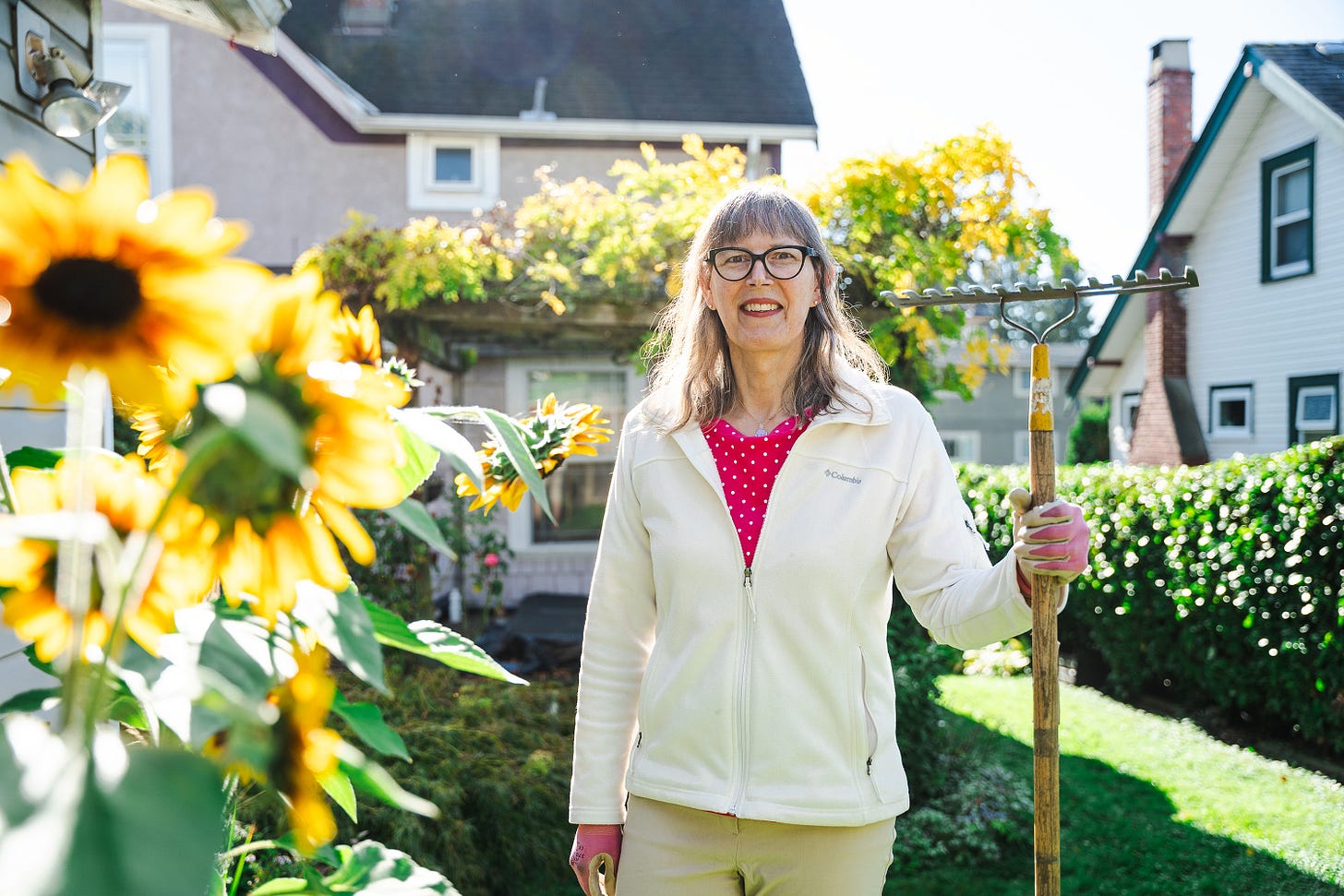Hello from a hopeful trans woman
Get to know a she/they enby girl and read some gripping stories
There’s a lot of territory to cover so I’d like to get the preliminary disclaimers and trigger warnings out of the way. You’ll find some oversharing about medical transitioning and my personal life, and if you’d like some distance between me and my storytelling, check out the novella I wrote about investigating my father’s death, called Murder of an Uncommon Man. I changed all the names and places and called it fiction to protect my family’s privacy, but the story is true. If you prefer audiobooks to reading, I’ve got you covered.
Author’s Note
My story of transition began as a middle-aged white heterosexual leading the privileged life of someone presenting as male. With advantages in social position, education, and finances, my transition has gone smoother than many, benefitting from the means and opportunity to have surgeries many can’t afford. I don’t think anyone should feel pressure to take hormones or have surgery to find acceptance, but in my case, my mental health demanded it. I don’t mean to imply that anyone should follow my example. As they say, please don’t try this at home!
Many queer people of colour have fought for, and are still fighting for, the freedoms I enjoy. I am forever in their debt. I live and work on the unceded and unsurrendered land of the Halkomelem-speaking peoples to whom I also owe a debt, apology, and work toward reconciliation. With utmost gratitude, I hope that sharing my transition will make it easier for everyone on the path toward self-awareness, acceptance, and reconciliation.
Few transitions are without challenges of mental health, suicidal ideation, and recovery from surgeries. Mine was no exception. Please take care of yourself and get help if these topics distress you. Here are some resources if you’re in the US or Canada.[i]
Some terms I used when I started blogging in 2015 already make me cringe, and the words I use now will inevitably be outdated and offensive. I’ve done my best to edit and update the blog posts and correspondence with family, friends, and co-workers as much as I can, but sometimes I have blind spots.[ii]
Please don’t look here for cutting-edge discourse in theory—I’m not an expert in gender studies. For example, I learned recently that the Manual of International Statistical Classification of Diseases and Related Health Problems ICD-11, replaced “transsexualism” with “gender incongruence” in 2018 and took it out of the chapter on mental disorders.[iii] There’s a lot I need to learn, and I hope you’ll continue reading more about gender after you finish this book.
This memoir doesn’t include my deadname (birth name), or a photo of me presenting as male. Sharing and using a deadname is a personal choice, and to be honest, I don’t enjoy seeing photos or deadnames of others who transitioned. I realize some are fine with their historical record, and if they were in the public eye before they transitioned, they don’t have much choice over what’s out there. But that’s not me. For me, learning and using new pronouns and names are signs of respect. Where my deadname appears in emails and conversations, I’ve replaced it with “[deadname].” If you find it hard to read, please realize that for me and many others, it can feel like a slur when we hear or see our deadnames, regardless of the intention.
For the language purists out there, I write in Canadian English. I considered rewriting the blog posts in American English since many of you are American, but messing with the snapshots in time didn’t feel right in my bones. For my British English cousins, you’ll see some spellings that don’t look right to you either. Canadian English is a mix of American and British English, reflecting colonial and close cultural relationships. As is customary in Canada, I apologize in advance if this offends either American or British readers.[iv]
Next up is the story of how I became A.M. Kirsch.
[i] Trans Lifeline, https://translifeline.org/.
The Trevor Project, https://www.thetrevorproject.org/.
PFLAG, https://pflag.org/.
9-8-8: Suicide Crisis Helpline (Canada), https://988.ca/.
988 Suicide and Crisis Lifeline (US), https://988lifeline.org/.
[ii] Punctuation was added in some places to make them easier to read.
[iii] M. Fernández Rodríguez, M. Menéndez Granda, Villaverde González, “Gender Incongruence is No Longer a Mental Disorder,” Journal of Mental Health and Clinical Psychology, September 18, 2018, https://www.mentalhealthjournal.org/articles/gender-incongruence-is-no-longer-a-mental-disorder.html.
[iv] Emily Keeler, “Sorry—can we talk about why Canadians apologize so much?” CBC/Radio-Canada, January 19, 2017, https://www.cbc.ca/2017/sorry-can-we-talk-about-why-canadians-apologize-so-much-1.3939997.




